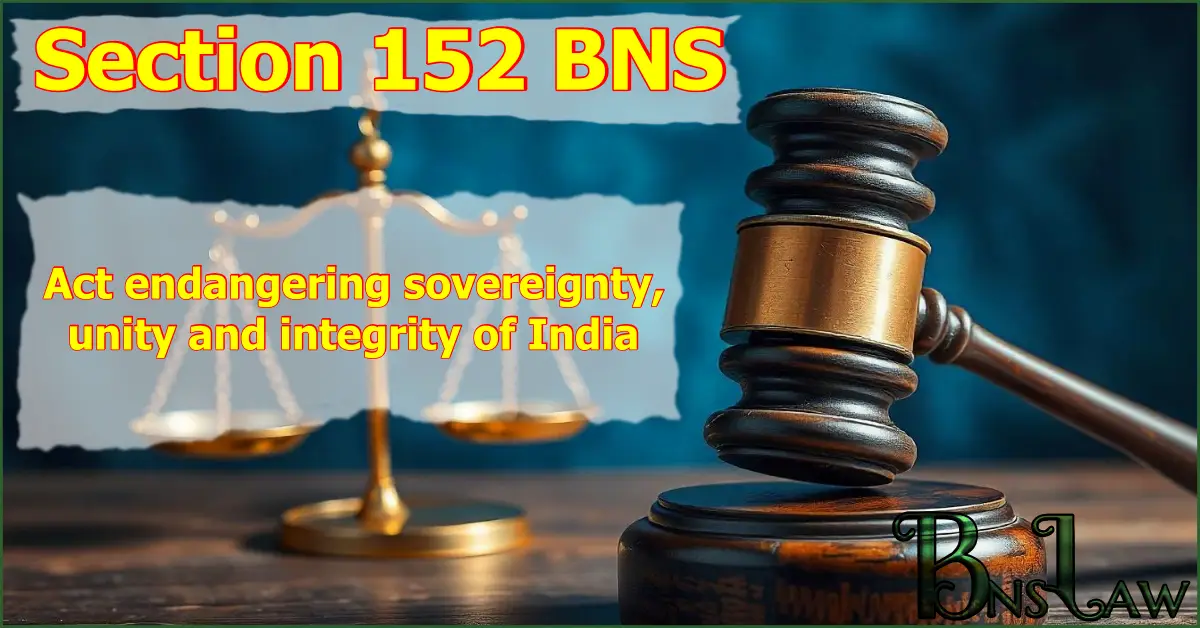Section 152 BNS
Whoever, purposely or knowingly, by words, either spoken or written, or by signs, or by visible representation, or by electronic communication or by use of financial mean, or otherwise, excites or attempts to excite, secession or armed rebellion or subversive activities, or encourages feelings of separatist activities or endangers sovereignty or unity and integrity of India; or indulges in or commits any such act shall be punished with imprisonment for life or with imprisonment which may extend to seven years, and shall also be liable to fine.
Explanation— Comments expressing disapprobation of the measures, or administrative or other action of the Government with a view to obtain their alteration by lawful means without exciting or attempting to excite the activities referred to in this section do not constitute an offence under this section.
READ OTHER SECTIONS OF CHAPTER VII — OF OFFENCES AGAINST THE STATE
FAQs of BNS Section 152
-
152 BNS punishment and fine
Punishment and fine under Section 152 of the BNS: Imprisonment for life, or imprisonment for 7 years and fine.
-
152 BNS cognizable or not
The offence under Section 152 of the BNS is cognizable.
-
152 BNS bailable or not
The offence under Section 152 of the BNS is non-bailable.
-
152 BNS trial court
Offence specified in Section 152 of the BNS is triable by the Court of Session.
Important Points
- Cognizable Offences: These are offences where a police officer can arrest a person without a warrant.
- Non-Cognizable Offences: These are offences where a police officer cannot arrest a person without a warrant.
- Bailable Offences: These are offences where the accused can get bail from the police station itself. All bailable offences are listed in the First Schedule of the Bharatiya Nagarik Suraksha Sanhita (BNSS).
- Non-Bailable Offences: Offences in which bail is not granted directly from the police station but after hearing the case in the court, the judge decides when bail will be granted. All non-bailable offences are listed in the first schedule of the Bharatiya Nagarik Suraksha Sanhita (BNSS).
- In the above FAQ, “trial court” means the court that has jurisdiction to try the offence.
- In the above FAQ, the expression “Magistrate of the first class” and “Any Magistrate” does not include Executive Magistrates.
Read other Sections of the BNS
Reference Link: New Criminal Laws (BNS), Ministry of Home Affairs







